The packed stadium shudders as thousands of orange-clad Dutch fans bounce around, chanting the name of their favorite player, but they are not watching AFC Ajax or the Netherlands soccer team. This is darts.
Sometimes derided as a game played over a pint in British pubs, darts is a huge deal in the Netherlands.
Boards can be found in every pub, the grassroots game is massive and growing, TV coverage extensive and the exploits of top “darters” make national headline news.
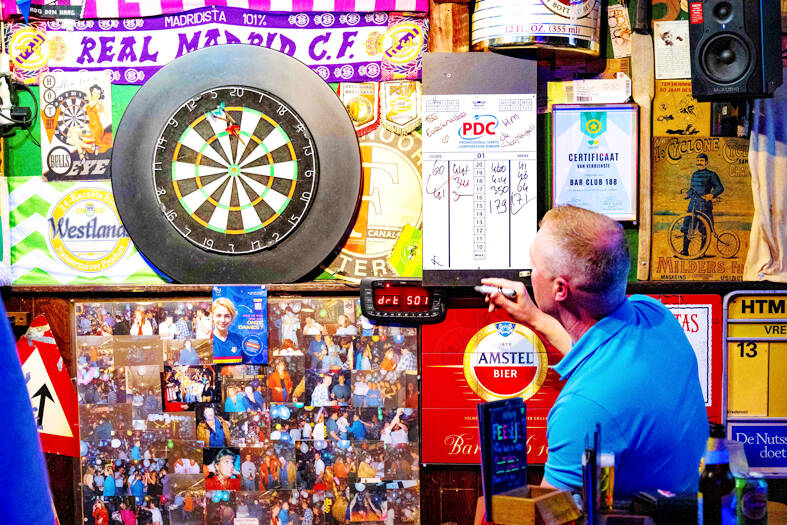
Photo: AFP
The latest Dutch hero is Michael van Gerwen, or “MvG,” and more than 12,000 fans sold out the Rotterdam Ahoy arena on Thursday to see him compete in the BetMGM Premier League Darts tournament, which pits the world’s top eight players against each other.
Well-oiled fans, many in orange fancy dress, went crazy every time players hit the maximum 180, punctuating their screams with chants of “Stand up if you love the darts,” bringing everyone to their feet.
Yet the roof really came off when Van Gerwen strode to the stage in his trademark bright green shirt. The fans cheered every dart he threw, but to no avail — he lost to world No. 1 Luke Humphries.
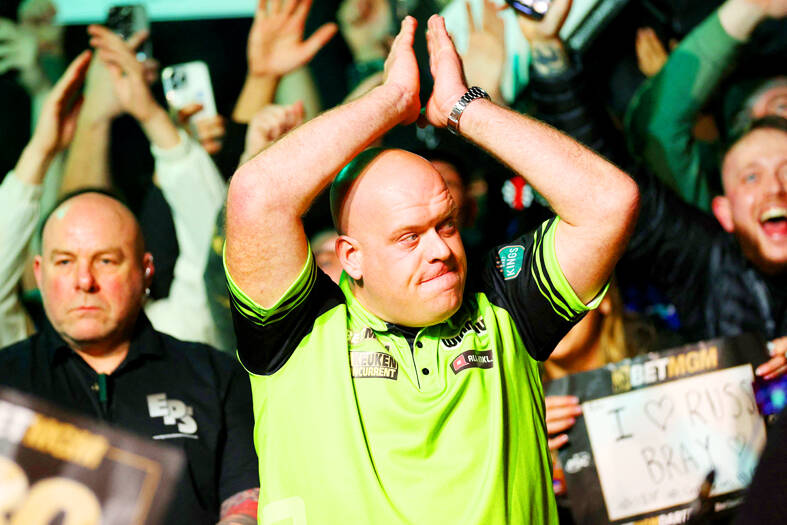
Photo: AFP
Why is darts so popular in the Netherlands? Three words: Raymond van Barneveld.
A former postman from The Hague, Van Barneveld, now 57, has a decent claim to being the best player to ever throw a dart.
In 1998, “Barney” was the first Dutchman to win a world championship, the first of five in a career that included his 7-6 win over Phil “The Power” Taylor in the 2007 final many consider the best match of all time.
That 1998 win at the iconic Lakeside venue catapulted darts into the Dutch consciousness and broke the monopoly of British champions, paving the way for it to be the more global sport it is today.
“It was unbelievable,” he said in his office, a treasure trove of darts memorabilia, with trophies and championship photos lining every wall — except the one with his three practice boards.
“The television viewing figures were insane. Some people said to me over 5 million viewers. Back then we had only 15 million people in Holland,” Van Barneveld said.
“I got a tulip named after me... When I came through [Amsterdam’s] Schiphol Airport, it was like the Beatles were arriving at Schiphol. I was shocked,” he said.
After a brief retirement, Van Barneveld is fighting his way back up the rankings. The “Barney Army” that supported him around the world was still in evidence in Rotterdam, periodically chanting his name even though he is now far from the top eight.
Away from the professional oche, at Bar Club 188 in The Hague, the players from the 188 Eurobangers are warming up for their tricky division three clash against the “Half Moon Cafe Wrecking Balls.”
Bar Club 188, which has been hosting darts for 50 years, recently jettisoned its pool table to squeeze in another oche, such is the demand.
Nikki Schenkeveld-Siemons was born upstairs, her parents owned the pub and passed it down to her. She has been playing darts since her early teens.
“Around the time Raymond van Barneveld got big in the Netherlands, darts just exploded. Everybody wanted to play darts, play in a darts team,” the 35-year-old said.
“I think we started with two teams. We have 14 right now and a couple of the teams have a waiting list,” she added.
Competitive darts is played almost every night at Bar Club 188. Players warm up to the strains of Survivor’s Eye of the Tiger to get the juices flowing.
Football plays on the TV but no one is watching — if anyone does glance away from their match, it is to watch the televised darts.
Schenkeveld-Siemons can count 100 regular players at her pub alone. The Dutch Darts Association has 33,000 official members, but this is a fraction of the recreational players.
“Once people start trying, they figure out that it’s not that easy, but it’s a bit addictive... It’s a fun and very annoying game at the same time,” she said.
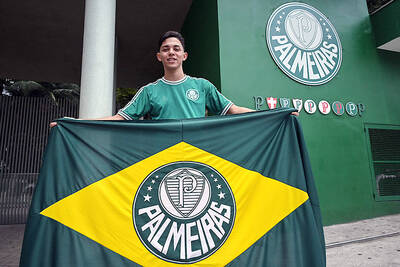
Brazil has four teams, more than any other country, in the expanded Club World Cup that kicked off yesterday in the US, but for SE Palmeiras, the competition holds a special meaning: winning it would provide some redemption. Under coach Abel Ferreira since 2020, Palmeiras lifted two Copa Libertadores titles, plus Brazilian league, cup and state championships. Even before Ferreira, it boasted another South American crown and 11 league titles. The only major trophy missing is a world champions’ title. Other Brazilian clubs like Fluminense FC and Botafogo FR, also in the tournament, have never won it either, but the problem for Palmeiras
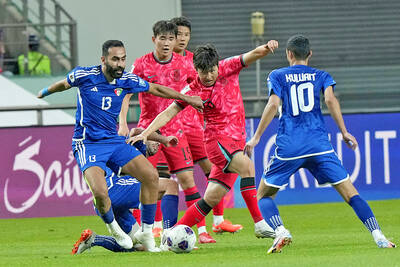
Paris Saint-Germain’s Lee Kang-in has pleaded with South Korea fans to get behind the team at the 2026 FIFA World Cup after more boos were aimed at coach Hong Myung-bo despite leading them to qualification. South Korea reached next year’s finals in North America without losing a game, but that does not tell the whole story. The country’s soccer association has been in the firing line, having scrambled about to find a successor after sacking the unpopular Jurgen Klinsmann in February last year. They eventually settled on Hong, the decorated former skipper who had an unsuccessful stint as coach in 2013-2014, during which

Lionel Messi drew vast crowds and showed flashes of his brilliance when his Inter Miami side were held to a goalless draw by African giants Al-Ahly as the revamped FIFA Club World Cup got off to a festive start on Saturday. Fans showed up en masse for the Group A clash at the Hard Rock Stadium, home to the NFL’s Miami Dolphins, but Messi could not fully deliver, his best chance coming through a last-second attempt that was deflected onto the crossbar. Inter Miami next face FC Porto on Thursday in Atlanta, while Al-Ahly, who benefited from raucous, massive support, are to
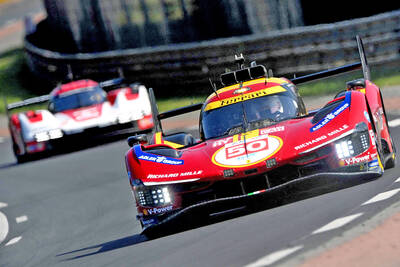
Ferrari’s F1 fortunes might be flagging, but the Italian team start this weekend’s 24 Hours of Le Mans as favorites, targeting a third consecutive triumph in motorsport’s fabled endurance classic. Roger Federer is acting as celebrity starter with the tennis icon getting the 93rd edition of the jewel in four-wheeled endurance racing’s crown under way tomorrow. Twenty-four hours later, through daylight, darkness and dawn, the 21 elite hypercars are to battle it out over 300 laps (more than 4,000km) in front of a sold-out 320,000 crowd burning the midnight oil with copious quantities of coffee and beer. Ferrari made a triumphant return after